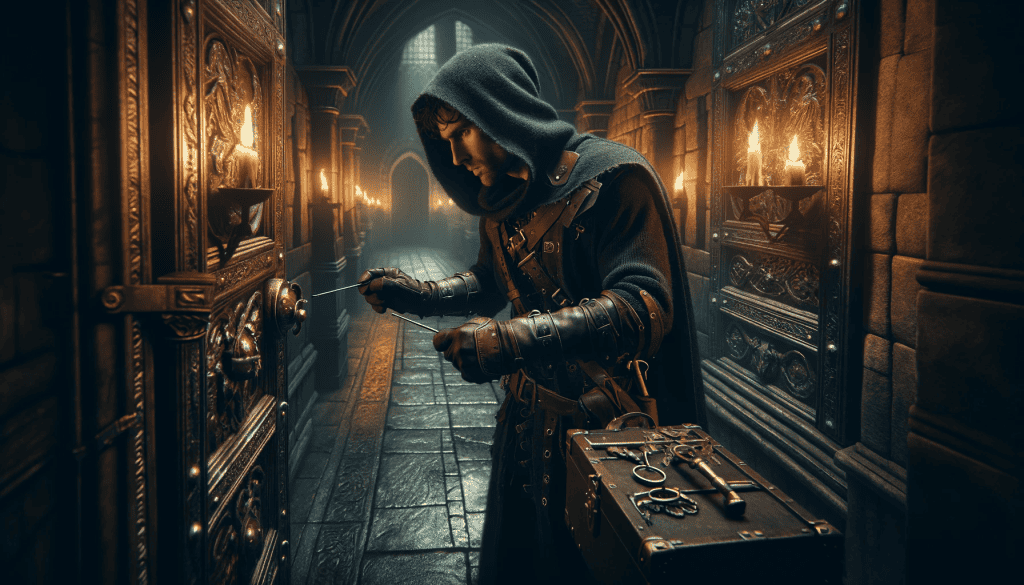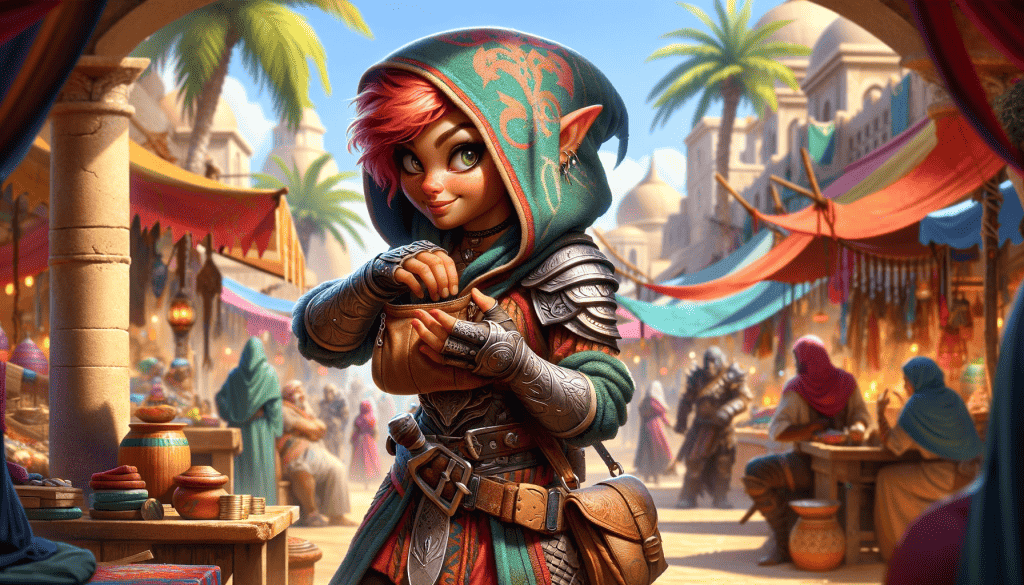How to Roll for Stats 5e D&D
Welcome to this guide on rolling stats for D&D 5e! Whether you’re a veteran player looking to shake things up or a newcomer trying to figure out where to start, this guide covers you. I’ll explain everything you’d want to know before you start rolling and how to roll for your character’s Ability Scores. If you only need a refresher on how to roll your stats, skip to the “Let’s Roll” section. For anyone else, let’s go over the basics.
Dice
Dice makes the D&D world go round. To roll, you need dice. While most of you already know about dice, this is for the few who may need the information before diving in.
There are 6 main dice used in D&D. These are the d4, d6, d8, d10, d12, and d20. There is also the d100, or percentile dice, which use two d10s. D is short for die, the singular word for dice, and the number is the number of sides on the die. So, a d12 is a twelve-sided die. Having physical dice or using an online dice roller will help you as you go through this article.
Making A New Character
Creating a new character can be a fun and exciting experience but also overwhelming for new players. Looking at your empty Character Sheet may make you feel uncertain, but follow along so we can fill it out together!

Character Classes
A good first step for creating a new character is choosing a class. The class determines your character’s abilities, skills, and role in the party. There are 12 classes in the Player’s Handbook, each with a unique set of features and abilities. Look at the classes and their abilities before you decide which class to play, or you can let fate decide! Pick from this list by rolling your d12:
| Class | d12 |
| Barbarian | 1 |
| Bard | 2 |
| Cleric | 3 |
| Druid | 4 |
| Fighter | 5 |
| Monk | 6 |
| Paladin | 7 |
| Ranger | 8 |
| Rogue | 9 |
| Sorcerer | 10 |
| Warlock | 11 |
| Wizard | 12 |
Tasha’s Cauldron of Everything officially added a 13th class, the Artificer. If you are using D&D Beyond, you may also notice the Blood Hunter class. Blood Hunter is an example of an unofficial class made by Matt Mercer.
Players make all kinds of unique classes and subclasses you could use! Game material made by players is called Homebrew and is not considered official. If you like a Homebrew class, talk to your DM to see if it’s okay for you to play it.
Character Races
After selecting a class, you can choose a race for your character. Your race determines your character’s physical traits and abilities. There are 9 core races to choose from in the Player’s Handbook. Unlike Classes, Wizards of the Coast has added more playable races in extended material.
Mordenkainen Presents: Monsters of the Multiverse added a whopping 33 playable races! I can’t list or talk about all the races because that’s something you should explore yourself. Want to leave it up to chance? Here is another list that you can roll a d20 to determine your race:
| Race | d20 |
| Half-Orc | 1 |
| Centaur | 2 |
| Half-Elf | 3 |
| Leonin | 4 |
| Kalashtar | 5 |
| Aarakorcra | 6 |
| Human | 7 |
| Goliath | 8 |
| Dragonborn | 9 |
| Tiefling | 10 |
| Dwarf | 11 |
| Tortle | 12 |
| Plasmoid | 13 |
| Satyr | 14 |
| Halfling | 15 |
| Elf | 16 |
| Verdan | 17 |
| Changeling | 18 |
| Gnome | 19 |
| Aasimar | 20 |

Ability Scores
Ability scores are the core of your character’s inherent physical and mental skills. Strength, Dexterity, Constitution, Intelligence, Wisdom, and Charisma are the six abilities. Each one is represented by a number between 1 and 20. They influence your skill checks, saving throws, and combat rolls. What abilities are useful depends on your class. Here is a quick breakdown of the abilities and what classes they are important to.
Strength
Strength represents a character’s physical power, athleticism, and ability to exert force. If you choose a Fighter, Barbarian, or Paladin, they rely on physical attacks. A high Strength score lets you deal more damage, carry heavier gear, and perform physical tasks like jumping or climbing.
Dexterity
Dexterity represents a character’s agility and finesse. It is important for characters who rely on ranged combat, such as Rogues, Rangers, and Bards. A high Dexterity score will allow you to avoid attacks, sneak around, and perform acrobatic maneuvers. Dexterity is often used to calculate your armor class too!
Constitution
Constitution is important for all characters as it affects your hit points. It also helps you resist things like poison, disease, and exhaustion. A high Constitution score will allow you to last longer in combat, survive harsh environments, and drink excessive amounts of ale. Of all classes, Barbarians care most about Constitution.
Intelligence
Intelligence represents a character’s technical knowledge, such as in history or the arcane. Wizards, Artificers, and Knowledge Domain Clerics rely on Intelligence for their magical attacks. A high Intelligence score will allow you to cast more spells, learn things quickly, and solve puzzles.
Wisdom
Wisdom could be considered a character’s “common sense” or intuition. It is crucial for Clerics, Druids, and Rangers because they rely on perception and connecting with nature and gods. A high Wisdom score will allow you to sense danger, detect hidden doors, and make sound judgments.
Charisma
Charisma, or as the kids call it “Rizz,” is about how well a character talks, looks, or acts. Sorcerers, Paladins, Warlocks, and Bards use Charisma when casting their spells. A high Charisma score will also allow you to influence others, convince them to do things, and perform feats of showmanship.
DM Tip: If you are feeling ambitious, you can Homebrew your own custom Abilities. Integrity could measure how well your character is in a given domain. Resilience could be the Constitution of the mind.

Lets Roll!
Now that you have picked the Race and Class of your character, it is time to roll your stats! Rolling your base stats is consistent across all characters, but you should distribute the stats based on your class. The rules for rolling stats go like this:
- Roll your d6 4 times, and write down each number
- Remove the lowest of the 4 results
- Add the 3 remaining results together
- Repeat 5 more times so you have 6 numbers, one for each Ability Score
- Assign each number to an ability score
- Add any class, racial, or feat bonuses to the scores
For some, this may be all you are looking for, but if you still feel lost, let’s go through each step together.
Step-by-step guide on rolling for stats
I just created my new Human Fighter character, Viktorin Di. Now I will roll to see what his Ability Scores will be. Take my d6 and roll… 1… 1… 5… 5… Now let’s take out one of the 1s since it was the lowest roll. That leaves us with 1 + 5 + 5 = 11. Let’s do it 5 more times to get all 6 Scores.
2… 5… 6… 5… Remove 2… 5 + 6 + 5 = 16
6… 4… 3… 3… Remove 3… 6 + 4 + 3 = 13
5… 5… 1… 2… Remove 1… 5 + 5 + 2 = 12
2… 2… 4… 2… Remove 2… 2 + 2 + 4 = 8
1… 5… 1… 3… Remove 1… 5 + 3 + 1 = 9
Now, my Ability Scores pool is 11, 16, 13, 12, 8, and 9. Strength, Constitution, and Dexterity are my most important abilities as a fighter. Wisdom, Intelligence, and Charisma aren’t as useful to a Fighter. I’ll be assigning my base Scrores like this:
| Ability | Score |
| Strength | 16 (+3 Modifier) |
| Dexterity | 12 (+1 Modifier) |
| Constitution | 13 (+1 Modifier) |
| Intelligence | 8 (-1 Modifier) |
| Wisdom | 9 (-1 Modifier) |
| Charisma | 11 (+0 Modifier) |
Remember to check if you have any racial bonuses for your Ability Scores. Since I am playing a Standard Human, I can add 1 to each of my Ability Scores. Meaning my Scores at level 1 would be:
| Ability | Score |
| Strength | 17 (+3 Modifier) |
| Dexterity | 13 (+1 Modifier) |
| Constitution | 14 (+2 Modifier) |
| Intelligence | 9 (-1 Modifier) |
| Wisdom | 10 (+0 Modifier) |
| Charisma | 12 (+2 Modifier) |
If you are starting at a level higher than 1, you must go through and add things based on your class. You can increase your Ability Scores at 4th, 8th, 12th, 16th, and 19th level. Once you have completed your base stats, you can add other aspects such as skill, tool, or language proficiencies. You gain these proficiencies from your Race, Class, and Background.

Rolling for other things
D&D sourcebooks often have tables similar to the ones earlier in this article. It can be for randomizing character traits, worldbuilding, or NPCs. When you find these tables you can use them to add extra flavor to your campaign.
While I have encouraged a lot of dice rolling and randomization, you can always opt to choose whatever Class, Race, or added flavor you want. If you don’t want to randomize your stats, there is another way to determine them!
Point buy option
Rolling stats can lead to characters with very high or very low scores. Point buy avoids the risk of some players having weaker characters due to unlucky rolls. Many DMs may prefer point buy for this reason.
Unlike with rolling, the max a stat can be before adding your racial bonuses is 15. All stats start at a minimum of 8, and it costs you points to increase that number. You have 27 points to spend. Here is a chart for how many points each score is worth:
| Score | Points |
| 8 | 0 |
| 9 | 1 |
| 10 | 2 |
| 11 | 3 |
| 12 | 4 |
| 13 | 5 |
| 14 | 7 |
| 15 | 9 |
Here is an example of how my Human fighter’s stats might have looked using the point buy method:
| Ability | Ability Score | Point Cost |
| Strength | 15 | 9 |
| Dexterity | 15 | 9 |
| Constitution | 14 | 7 |
| Intelligence | 8 | 0 |
| Wisdom | 9 | 1 |
| Charisma | 9 | 1 |
| Total Points = | 27 |
This is before I add one to every Ability Score for being a Standard Human. Since many of the stats are on an odd number, when I add one, the modifier will go up!

To Sum It Up
Choosing a Class and race and rolling for Ability Scores are important steps in creating your unique D&D character. Remember to consider what abilities are important to your chosen class, and don’t be afraid to let fate make some of those choices for you!
Did you like the article? Send this to your friends who you want to start playing D&D, and comment below if you found this guide helpful.


